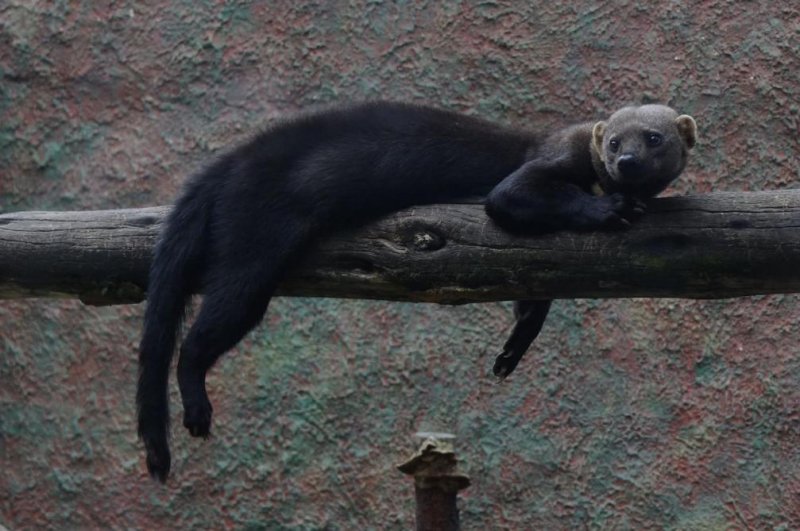New research found the tayra, a weasel-like predator from South America, serves as a reservoir for the Chagas-disease causing protist parasite carried by kissing bugs. Photo by University of California, Riverside
Sept. 19 (UPI) -- Scientists have identified a new carrier of Chagas disease. Tayra, a weasel-like species, host and carry the protist parasite that causes the disease.
The tropical parasitic disease -- and the protist that causes it -- are delivered by kissing bugs. In South America, kissing bugs infect monkeys, sloths, porcupines and coatis, a raccoon-like species. Still, researchers don't know a lot about the disease's transmission process.
"There are 152 species of kissing bug, but we don't know much about most of them, including the animals they feed on that can act as reservoirs for the parasite," Christiane Weirauch, an entomologist at the University of California, Riverside, said in a news release. "Overall, the existing data is piecemeal, scattered, and biased toward a handful of heavily studied and well-documented species, while little data exists for insects that are found in very secluded habitats."
Animals can become infected with the disease-causing parasite, Trypanosoma cruzi, when the feces of kissing bugs enters the body through mucous membranes or skin lesions. The large, blood-sucking tropical insect tends to feed at night. It prefers to feed near the mouth, where blood capillaries are many and the skin is thin.
Once infected, an animal can become a host, or reservoir, for the parasite. Uninfected kissing bugs can pick up the protist from an infected animal, like the tayra.
Finding new host species among the forests of South America isn't easy, but researchers were able to analyze the DNA found in the blood of kissing bug specimens to identify possible hosts.
"Our modern approach using DNA allowed us to determine this wide variety of animal hosts without a bias towards ones that are already known, unlike some older detection methods," said Anna Georgieva, an undergrad at UCR.
Host associations were revealed by DNA from 24 of the 64 kissing bug samples. Researchers published the results of their analysis in the journal PeerJ. Scientists hope the findings will help public health officials and wildlife managers better contain the spread of Chagas.
Because bioaccumulation is likely to concentrate the Chagas-causing parasite in top predators like the tayra, researchers say such host species would be ideal targets for future Chagas vaccines.















